
Student Policies
1. Admissions, Enrolment & Withdrawal Process
Program-Specific Admission and Enrolment
1. AMEP (Adult Migrant English Program)
About AMEP
The AMEP is a free, government-funded English language program to help eligible migrants and humanitarian entrants settle successfully in Australia.
Eligibility Criteria
If you are aged 18 or over, you can join the AMEP if you speak little or no English and you:
- are a permanent resident, or
- you hold an eligible temporary visa, or
- you are a citizen who held an eligible visa in the past.
If you are aged 15 to 17, you may be able to join the AMEP, speak to us about this.
Admission Process
1. Referral: From Settlement Services Provider, Services Australia, or self-referral
2. Registration: Complete enrolment form, provide visa and ID documentation, USI creation, and sign the Student Agreement
3. Assessment: Language Skills assessment
4. Placement: Discuss goals and place into a suitable course level and mode (face-to-face, online, blended)
5. Orientation: You will receive information about your entitlements, class options, and support services.
2. SEE Program (Skills for Education and Employment)
About SEE
The SEE Program is a free, government-funded program for people who wish to improve their English, literacy, numeracy, and digital skills for employment or further study.
Eligibility Criteria
To be eligible for the SEE program, people need to be either:
- an Australian citizen, or
- a permanent visa holder, or
- on a provisional or temporary visa with working rights and eligible for the Adult Migrant English Program, or
AND
- be aged over 15 years and left school, and
- need help with reading, writing, maths, English language or digital skills.
Admission Process
1. Referral: Through Employment Services Provider, Services Australia, or self-referral
2. Registration: Complete enrolment form, provide visa and ID documentation, USI creation, and sign the Student Agreement
3. Assessment: Language, Literacy, Numeracy and Digital skills assessment
4. Placement: Match learning goals to course content and place into a suitable course level and mode (face-to-face, online, blended)
5. Orientation: You will receive information about your entitlements, class options, and support services
3. Fee-for-Service Programs
About Fee-for-Service Courses
These include nationally accredited qualifications and courses designed to support English language development, foundation skills, and employability skills for students not accessing government-funded training.
Eligibility Criteria
- Eligibility check based on visa conditions and meeting prerequisites to join the course
Admission Process
1. Application: Via online form, email, or in person
2. Registration: Complete enrolment form, provide visa and/or ID documentation, USI creation, and sign the Student Agreement
3. Assessment: Language Skills assessment (non-refundable)
4. Course Offer: Based on course availability and entry requirements
5. Orientation: You will receive information about your entitlements, class options, and support services.
Withdrawal from Study
1. Withdrawing from AMEP or SEE Program
- You may withdraw at any time by speaking with your teacher, or pathway guidance/support officer.
- If referred by Services Australia or an employment provider, we will notify them of your withdrawal.
- You can return to AMEP or SEE at a later date if still eligible.
2. Withdrawing from Fee-for-Service Courses
- Submit a Withdrawal Request in writing or via email.
- Refunds will be processed in accordance with the Refund Policy
Responsibilities
Shared Student Responsibilities
Regardless of the program, all students are expected to:
- Provide accurate information during the application process
- Attend classes regularly and notify staff of absences
- Engage respectfully and follow the NSF Student Code of Conduct
- Advise NSF of any changes to personal details, visa status, or contact information
2. Credit Transfer & Recognition of Prior Learning
Credit Transfer
You may be able to finish your course earlier by transferring credits from your previous studies. If your previous training was completed with a registered training organisation (RTO) other than Navitas Skilled Futures, we will need to verify this using your USI or by contacting the organisation. For more information on Credit Transfer talk to the Customer Service Officer at your college.
Recognition of Prior Learning (RPL)
RPL is where we recognise the skills, knowledge and experience you already have, related to your qualification. If you are awarded RPL, you could receive your qualification faster. For more information on RPL, talk to your Pathway Guidance Advisor.
3. Course Progress Monitoring
At Navitas Skilled Future (NSF), your learning progress is important to us. We want to make sure you are supported to succeed in your course, whether you are studying in the Adult Migrant English Program (AMEP), Skills for Education and Employment (SEE), or one of our Fee for Service (FFS) programs.
How We Monitor Your Progress
We regularly check your course progress to make sure:
- You are learning at the right level
- You are improving your skills over time
- You are attending regularly and participating
- You are receiving the support you need
What You Can Expect
Regular Feedback
Your teacher will give you ongoing feedback on your learning, classroom participation and assessments.
Progress Reviews
We review your learning progress throughout the course. This helps us understand your needs and goals and adjust your learning plan if needed.
Assessment Support
You’ll complete assessments during your course. These help show how your skills are developing and what extra help you may need.
Attendance Matters
Regular attendance is important. If you miss classes, we’ll talk to you to help you stay on track.
Your Voice Matters
We encourage you to share feedback with us! You’ll be invited to complete surveys and talk with staff about your learning experience.
What You Can Do
Stay Involved
Attend classes regularly, join in activities, and complete your tasks.
Ask for Help
If you’re finding things hard—talk to your teacher or a staff member. We’re here to help.
Set Goals
We’ll help you set learning goals and work with you to achieve them, whether it’s improving your English, preparing for work, or gaining a qualification.
Need Help?
If you have any questions about your course or your progress, please speak to your:
- Teacher
- Pathway Guidance Advisor/ Pathway Support Officer
- Academic Team Leader or College Manager
We’re here to help you succeed.
4. Attendance
NSF Absence Policy
What to do if you are absent
- If you are absent from class, you must contact the college
- Please call your college and give us your name, student ID and teacher’s name
- Tell us why you cannot come to class and how long you will be absent
Evidence for Absence?
If you are absent from class, you should show evidence for your absence.
You can bring this evidence to reception on the day you return to class. You can also bring it in before you are absent.
| Reason for absence | What to bring |
|---|---|
| Workforce Australia or Centrelink appointment | A Workforce Australia or Centrelink appointment letter or SMS |
| Job interview | A job interview confirmation (email or SMS) |
| Work | A letter from your employer |
| Illness | Medical certificate (2 days or more) |
| Travel | Travel ticket (interstate or overseas) |
| Family Commitments / Carer Responsibilities | Medical proof or talk to your Pathways Guidance Advisor |
What happens to my evidence?
Your evidence will be copied and stored securely. It is confidential.
Clients on Centrelink Benefits
If you are on a Centrelink benefit or have a Workforce Australia agreement, you must provide evidence for your absence from class. If you have no evidence, Navitas Skilled Futures must report your unexplained absence to your Workforce Australia or Disability Employment Services (DES) provider.
You must understand that your unexplained absence from class may affect your Centrelink benefit.
5. Issuance of Qualifications
At Navitas Skilled Futures (NSF), we are committed to recognising your achievements and ensuring all students receive the appropriate certification upon successful completion of their studies. This statement outlines how and when qualifications and statements of attainment are issued for students enrolled in the following programs:
- Adult Migrant English Program (AMEP)
- Skills for Education and Employment (SEE) Program
- Fee-For-Service (FFS) Courses
What You Will Receive
Depending on your program and course, you will be issued with one or more of the following upon successful completion:
- Testamur (Certificate): A formal qualification issued when all course requirements are met.
- Statement of Attainment: Issued if you partially complete a course or complete individual units of competency.
All qualifications and statements are nationally recognised and comply with the Australian Qualifications Framework (AQF) and Standards for RTOs 2025.
When You Will Receive It
Your certificate or statement will be issued within 30 calendar days of:
- Completion of all assessment and course requirements; and
- Your USI (Unique Student Identifier) being verified; and
- All administrative requirements being finalised (e.g. full attendance, final assessments submitted, fees paid if applicable).
Please ensure your personal and USI details are up to date with us to avoid delays.
Replacement Certificates
If you require a replacement certificate or statement of attainment due to loss or damage, you can request one in writing. An administrative fee may apply.
Additional Information
- For AMEP and SEE students, certificates are issued free of charge upon completion.
- For Fee-For-Service students, certificates are issued as part of the course package, unless otherwise stated at enrolment.
- If you withdraw before completing your course, you may still be eligible to receive a Statement of Attainment for any completed and assessed units.
Need Help?
If you have any questions about your qualification or eligibility, please speak to your teacher, pathway guidance advisor/pathway support officer, or contact our Student Support team.
We are proud of your achievements and look forward to celebrating your success!
7. Compliments, Complaints & Critical Incidents Reporting Process
At Navitas Skilled Futures, your feedback is important to us. If you have a complaint, appeal, or compliment, we encourage you to speak up. Here’s how the process works and what you can expect:
Who Can You Talk To?
You can speak to any staff member if you have a concern or want to give feedback. You might feel more comfortable speaking with someone who:
- Speaks your language,
- Shares your interests, or
- Has built a good relationship with you.
Our team is here to listen and help.
You Have the Right to Support
- You can bring someone with you to support you at any stage of the complaints or appeals process.
- If you are under 18 years old, any conversations must take place in a public area. If this is not possible, there must be two people present – either two staff members, or one staff member and an adult support person of your choice.
No Issue Is Too Small
Even a small concern is important. Sometimes a small issue might mean something bigger is going on. Whatever the problem, we’ll take it seriously.
How We Handle Complaints
- Your complaint will be handled promptly, fairly, respectfully, and confidentially.
- We aim to respond within 24 hours and to resolve the issue within 1–5 business days.
- If it takes longer, we will keep you informed and explain why.
- If it takes more than 60 days, this will be formally recorded in writing.
Your Safety and Wellbeing Matter
While your complaint is being looked into, we will ensure you are not treated unfairly or differently because you spoke up.
Reporting
If your complaint is serious, our Program Manager may be required to report it to the Government department that oversees our programs.
Please use the links below to find the relevant policy.
AMEP Compliments and Complaints Policy

